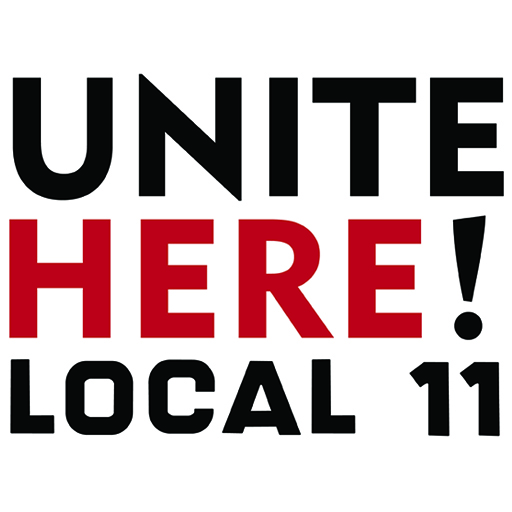IS YOUR BOSS TRIPPING? KNOW YOUR RIGHTS DURING A STRIKE
Special information for HMS Host strikers from UNITE HERE Local 11 staff attorney Alyssa Peterson
Every worker is protected when they act with other workers to fight for better working conditions. Even when you are on strike, you have legal rights as an employee. Make sure to document what you are seeing and hearing through photos, screenshots of text messages, selfies or selfie videos and send the evidence to your organizer.
If you see or hear management doing any of the following, contact Laura Perez at (951) 255-6669, Mari Yepez at (480) 652-0650, or your committee person. These actions are unlawful, and we want to protect your rights and the rights of other workers.
Threats
- Any threat to workers because of protected activity
- “Protected activity” means actions you take together with your coworkers to fight for better working conditions, like a strike.
- Threats may be implied
- Example: “Remember Joe—he supported the union and he was fired.”
- May be a threat of unspecified reprisal
- Example: “You’ll get in trouble if you keep this up.”
Retaliation
- Taking harmful action against a worker or group of workers because they engaged in protected activity
- Examples of “protected activity”: a strike or other collective action for better working conditions
- Retaliation can be formal, like demotion or transfer
- Retaliation can also be more informal actions
- Example: intentionally making work so intolerable that a reasonable person would quit
- Example: enforcing rules that were not enforced before, like a crackdown on absenteeism after an organizing drive starts
Interrogation
- Trying to find out information when a worker is involved in organizing
- Examples: “Do you support the strike?” “Are you coming in to work today or supporting the strikers?” “How do you feel about the union?”
Promises
- Granting benefits in an attempt to discourage support for the union
- Example: the boss announces $2 dollar increases in hourly salary in the middle of a strike
- Soliciting grievances from workers
- Example: the manager pulls a worker aside and asks, “How has work been going? Do you have any concerns about how things are run around here?”
Surveillance
- Spying on striking workers or listening in on conversations between workers
- It is also unlawful to create the impression of surveillance
- Example: “I know who went to the union meeting last night.”
Unilateral Changes
- Before changing terms & conditions of employment, management must give notice and opportunity to bargain to the union before they implement the policy.
- Employers can’t implement policy changes that would affect a group of workers without talking to the union, for example:
- Changes to pay rate (including overtime and tips)
- Hours of employment
- New technology
- Job duties
- Benefits (healthcare, retirement, vacation)
- Work rules (meal benefits, break times, uniforms)
- Bonuses or incentives
